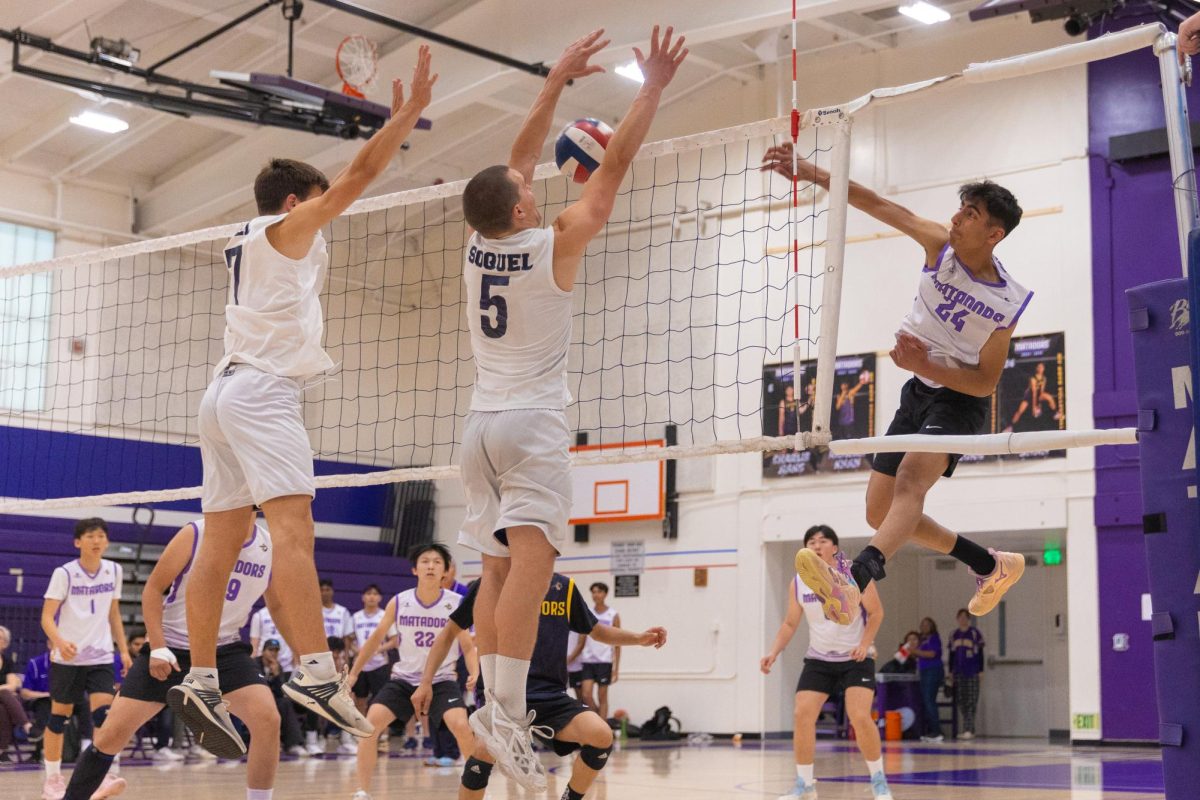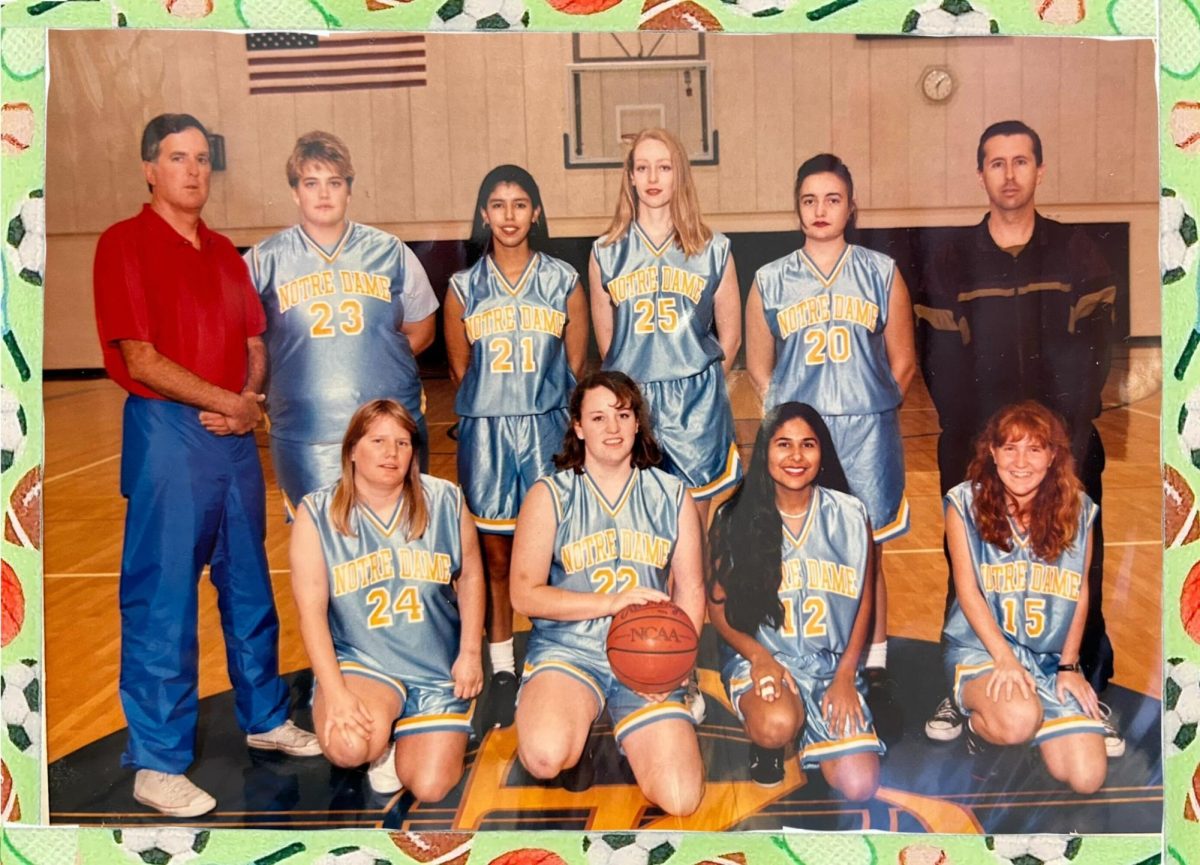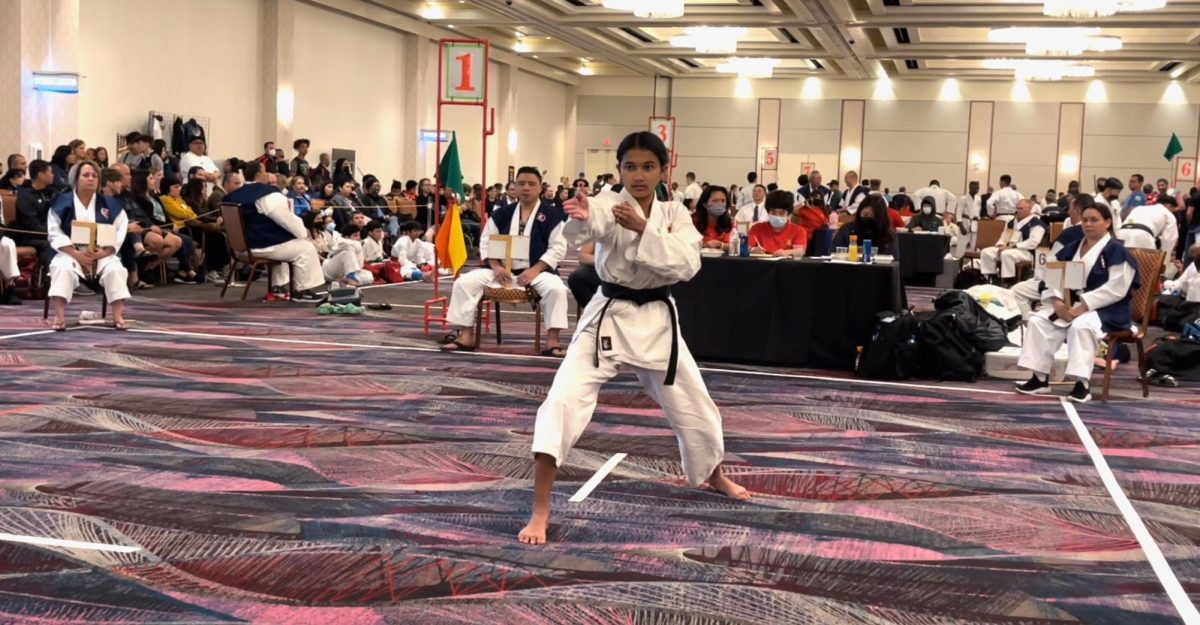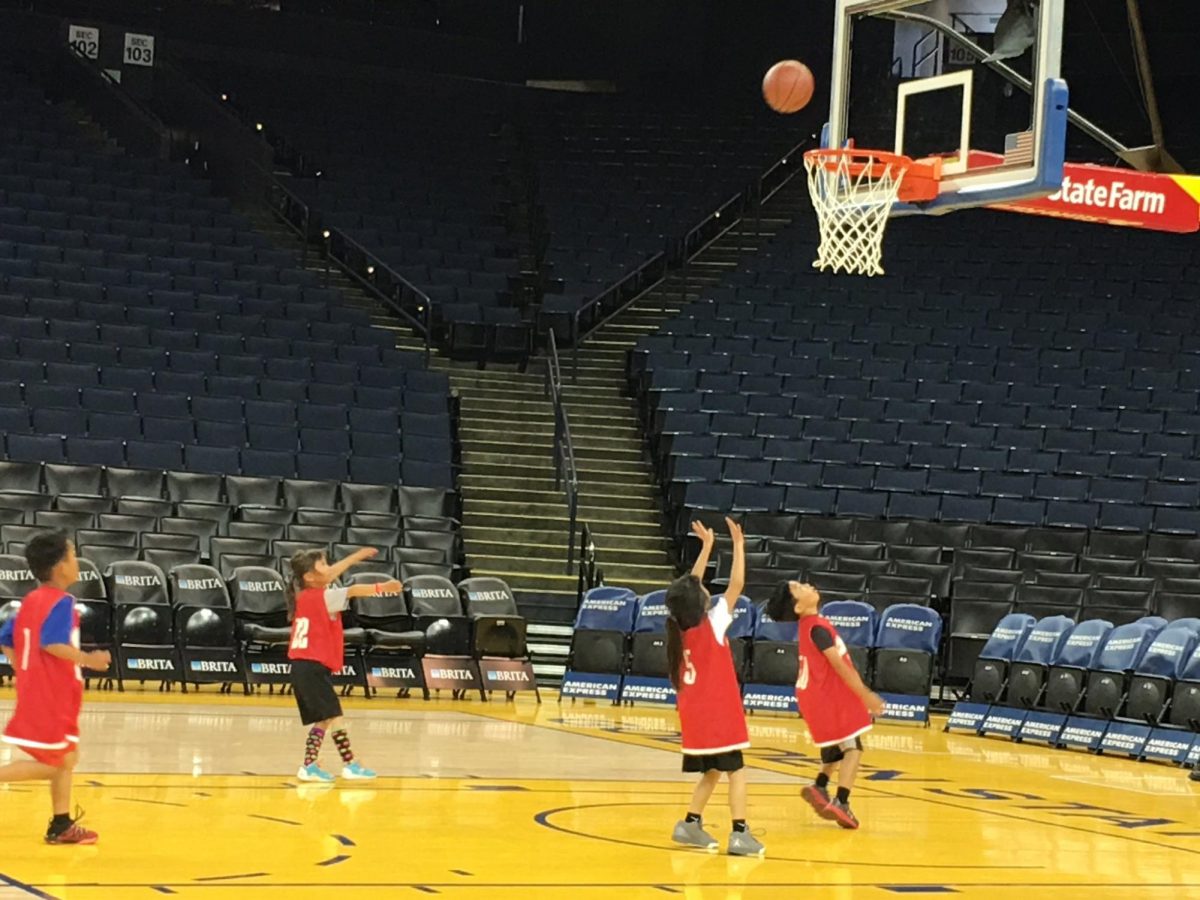Junior Clara Fan
Junior and track and field member Clara Fan started her superstition of putting tape on her wrist during an afterschool practice her freshman year. As there was extra athletic tape, which was used to mark the start for her high jump run ups, Fan decided to wrap the tape around her wrist, right under her Apple Watch. That day, as if the tape had special powers, she managed to hit an unofficial personal record. Tracing back to what was different, Fan noted that the tape might actually be her lucky charm.
Fan says superstitions and routines can be beneficial for players, highlighting how many of her superstitions helped her get prepared for games. However, she also notes that it can negatively affect people when superstitions start distracting players rather than helping them get in the zone. While Fan notes that her superstitions have gotten extreme at times, she is glad that she has been able to recognize this before it negatively affects her performance.
“I think that routines and superstitions can be beneficial and that they can get you mentally ready in the right headspace,” Fan said. “It’s just that sometimes they can get excessive and irrational and that’s when it can become unhealthy and do more harm than good. I’m grateful that my superstitions haven’t gotten worse and super intense, and when it does, I can recognize it usually and I make sure to bring it back down.”
Senior Arnav Jadhav
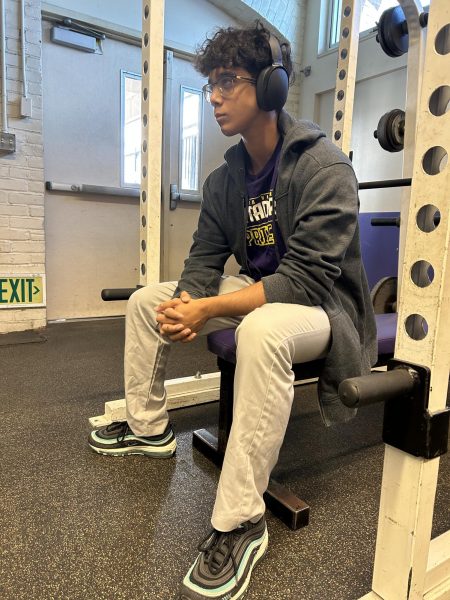
Senior and powerlifter Arnav Jadhav has always been superstitious, even outside of sports. For example, when Jadhav was younger, before tests or competitions, his mom made sure that he would take his first step out of his house with his right foot for good luck.
As Jadhav grew older, he began developing his own superstitions. Specifically for sports, ever since Jadhav lifted 275 pounds at a 132 pound bodyweight, which was an unofficial state record for powerlifting, while listening to “SR20DET” by Blksmiith, he claimed it as his lucky song and always puts it on repeat before any big events.
The day he hit his record, Jadhav remembers finding the song in his recommended songs on Spotify. When he arrived at the gym, he started playing the song and really enjoyed it, so he continued to play the song as he warmed up. Jadhav highlights how he felt “in the zone” and more motivated while listening to the song. Then, right after, Jadhav managed to hit his new record, which would have been the state record if he had competed.
Though Jadhav recognizes that he hit his record because of the practice he put in and not because of the song, he says the song helped him feel more confident in himself. Jadhav sees superstitions as a method to improve his mentality before competitions and does not tie the outcome of the events to his superstitions. Therefore, even when he does not get his desired result, he continues to stick with his superstitions without any doubt.
“I won’t change my superstitions just because it doesn’t work one or two times,” Jadhav said. “Because it worked in the past, it’ll definitely work again in the future. It’s not guaranteed because there’s many other factors as well, so we can’t fully rely on superstitions to succeed.”
Senior Sophia Lu

Since senior and Varsity Girls Basketball center Sophia Lu joined the basketball team, the team already had multiple superstitions in place. Before playing games, the team followed a specific structure: warm up, set goals and eat a gummy bear. Though Lu does not know the origins of these superstitions, she says their team has had a good league record since her freshman year, drawing a potential connection to the team’s success and its superstitions.
To Lu, these rituals create a ritual for the team, maximizing the players’ productivity and helping them focus on the game. After all, Lu explains that no matter how much a team practices, there are many unknown variables that can influence the outcome of the game, and many athletes are afraid of this uncertainty. Therefore, superstitions can give players a sense of security, allowing them to calm down and “get in the zone.”
Lu also has her own personal superstition that helps her prepare for games. Before arriving at a gym, Lu has to listen to music, specifically rap or Drake songs. With the music, Lu says thoughts like “What’s going to happen in the game?” or “Am I going to fail or mess up?” disappear from her mind, helping her focus more on preparing the game rather than thinking about the unknown.
While listening to music started as a superstition in her freshman year, as Lu recognized the positive impact music had on her mindset, Lu says this superstition gradually developed into a pre-game routine. Now, even if the superstition doesn’t seem to work and the team still loses the game when she has listened to music, Lu says she will continue her superstition, as she values the routine that the superstition gives her more than its effectiveness.
“To some extent, we know that superstitions aren’t real and that they’re just there to provide us [some] sort of comfort before a big event,” Lu said. “I wouldn’t change it if something didn’t work because it’s become part of that routine that I’ve become used to, so I’m [going to] stick to it, no matter the outcome.”
Sophomore Rocco Ling

MVHS Football had successful runs in its back-to-back home games against Saratoga High School and Lynbrook High School last year, winning 42-35 and 42-0 respectively. However, MVHS’s victory was not the only common factor. Before both games, Ling also forgot to wash his jersey, a coincidence that has lingered in his mind ever since.
Now, after every win, Ling leaves his jersey unwashed, explaining his belief that this habit might have been a contributing factor to the success against SHS and LHS. Ling’s superstition was reinforced by the Chinese New Year tradition he learned in his Chinese class, where they believed that showering on Chinese New Year brings bad luck, as it washes away fortune. Thus, Ling connected his unwashed jersey to his superstition, explaining that not washing his jersey may actually influence the outcome of his games.
However, while Ling says superstitions helped him build his self-confidence, over time, he has started relying less on these beliefs to reassure him before games. After all, Ling notes that superstitions can negatively affect players just as much as it helps them, especially when players accidentally fail to follow through with their beliefs. Therefore, Ling explains that he is starting to place less emphasis on superstitions for games, focusing more on building his own confidence in his abilities.
“When I started playing sports [at a young age], I really believed in superstitions [and was] always careful about certain shoes [and the socks] I wear,” Ling said. “I felt like it kind of [messes] with [my] mind [if] something didn’t go right. Like, you didn’t eat the breakfast you wanted, so then you’re like, ‘Oh crap. I’m [going to] lose this game.’ So, I slowly stopped [placing importance on superstitions], so I can be more confident in myself and not [have these beliefs] affect my performance.”












